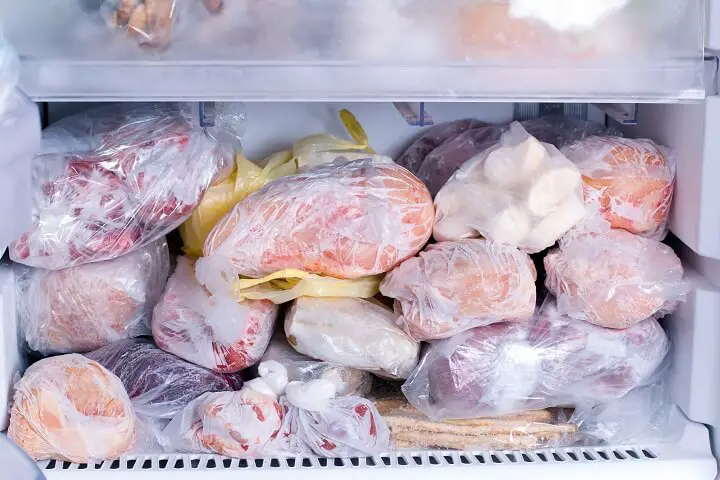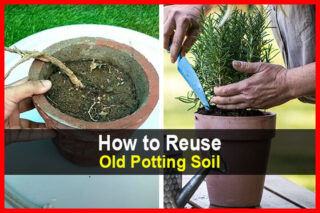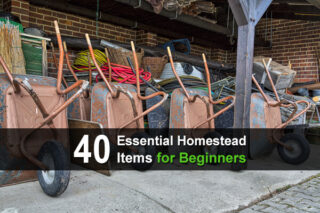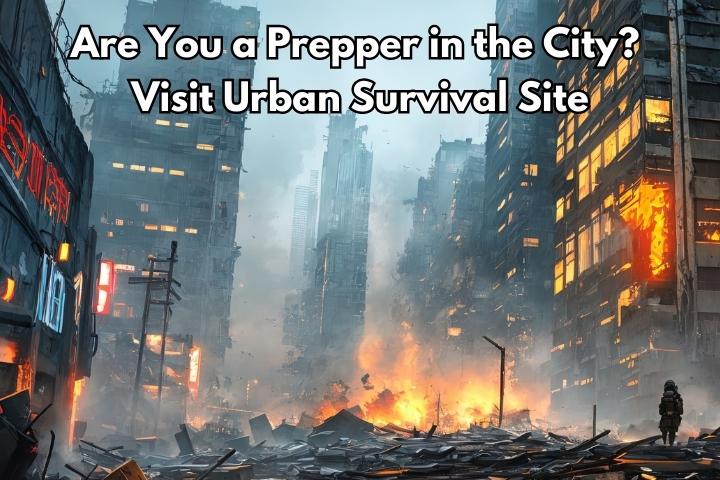Estimated reading time: 10 minutes
Life has changed since the end of February when Covid-19 started to spread across the United States. Though some states have fewer cases of coronavirus, many states are also having resurgences due to lessened restrictions, holidays, warm weather, and vacations.
If your town hasn't been hit yet, just wait. Numbers are creeping (or jumping) back up in many places around the United States. Though some think we are in the midst of a second wave, it’s actually just a continuation of the first wave that the United States has not gotten under control.
Want to save this post for later? Click Here to Pin It On Pinterest!
When a second wave hits, it will likely be in the fall or winter. Experts make the prediction based on comparisons to pandemics of the past like H1N1 and the Spanish Flu, which both ran the spectrum of milder spring outbreaks to more extreme outbreaks in the fall. Pandemics do have pockets of outbreaks within a wave, but the second wave will be distinctly noted either by a full recovery from the first wave or a mutation of the virus.
While we wait out the unknowns, many of us have an opportunity to prepare physically and logistically to make life easier and safer once the second wave hits.
Prevention
Although most healthy people don't get severe symptoms from coronavirus, other people have to treat it like the plague. People who are elderly, have underlying conditions, or are immunocompromised should be very cautious.
If you're lucky enough not to be in one of those groups, you're still at risk if you're not in good health. Now is a great time to look at your worst habits and try to make some changes.
Finally kicking a smoking habit, picking up a healthy eating habit, or being more active are all ways to take advantage of any extra time at home. Not only are these approaches worthwhile to help protect you from the risks of this virus, but they also improve your overall quality of life.
Do not postpone regular doctor appointments. In order to maintain your health, you must continue to ensure that you have no underlying conditions that may lessen your body's ability to fight off new viruses. Stay on top of your yearly check-ups and follow office protocols while you do so.
In addition to fortifying lifestyle choices, adding vitamins to your routine will lay a healthier foundation for your everyday life. Some medical professionals have found that liquid liposomal vitamin C helps in preventing Covid-19. It is a water-soluble vitamin, meaning any excess will not store in your body. Avoid exceeding 2,000mg a day as high doses like that could cause stomach upset and diarrhea.
According to a recent study at UChicago Medicine, there’s evidence that Vitamin D may help prevent Covid-19, or at least the severe version. Many patients with severe variations of Covid-19 actually show vitamin D deficiencies.
“‘Vitamin D is important to the function of the immune system and vitamin D supplements have previously been shown to lower the risk of viral respiratory tract infections,’ said David Meltzer, MD, Ph.D., Chief of Hospital Medicine at UChicago Medicine and lead author of the study. ‘Our statistical analysis suggests this may be true for the COVID-19 infection.’”

And if you catch it despite taking vitamin D, you should know there are studies indicating that vitamin D can help lower your risk of mortality. So if you don't get much sunlight, taking a vitamin D supplement might be a good idea.
To navigate dosage, consult your doctor or even consider a blood test to look at your vitamin D levels. Because this is a fat-soluble vitamin, too much of a good thing may harm you, but do not let that deter you from looking into this option.
On top of vitamin supplements, add plenty of plants to your diet. Fruits and vegetables hold many vitamins, minerals, and antioxidants. They also have a lot of fiber to help your gut health. Incorporating more plant-based eating into your daily life will boost your overall health and immunity.
Stock Up On Essentials
At the start of the first lockdown, many people were surprised and overwhelmed by the toilet paper shortage. Shortly following were paper towels, cleaning supplies, meats, dairy, and eggs.
In preparation for a second wave or an additional stay-at-home order, keep an eye out for some of the essentials that you may need, but try not to panic. As toilet paper flew off the shelves, it was clear that many people were rattled and scrambling to feel a sense of control. Anticipating needs should come from a calmer place of logic and should not lead to panic purchasing.
It is sensible to stock up on some items you may need in case of more time at home, or in the case of someone getting sick. Acetaminophen, Mucinex, vitamins, and hydration options are good to have on hand for any fall season, especially one that is amplified by a pandemic.
Items like hand sanitizer and cleaning supplies have continued to be hard to come by, so these are worth buying when you find them. Common bleach seems to be more accessible, so consider diluting some of that in your own spray bottles for disinfecting purposes.
Also get some honey, tea bags, chicken noodle soup, and any other comforts that are unique to your family when faced with a virus. Extra facemasks and gloves will be essential if someone in your home does fall ill.
Meat is still on the verge of shortages, especially when meat plants have outbreaks of the virus. And while other food sources may wax and wane, experts are saying that overall food resources have been maintained for those that are not financially struggling.
Some prices have risen due to supply and demand, and though there are some holes on the shelf at times, the food supply is still relatively stable. As a result, America will not be going hungry due to supply. Consider shopping fresh produce that’s in-season; it will be fresher and less likely to be in short supply.
Anticipating extra time at home or being prepared if someone gets sick at home is beneficial. A stocked freezer of fruit, vegetables, and meat will come in handy if you need it.

Things like yeast and baking supplies give you room to be in charge or your own bread since bread is often one of the first items off the shelf in an emergency. Also, keep your canned goods stocked. Some stores still have limitations on purchases, so this is easier to build gradually as opposed to panic buying during an emergency shortage.
The dairy supply has been less stable due to restaurant and school closures. During a second wave, dairy farmers might end up dumping their product again. While dairy is still available, consider trying some of the alternatives on the market.
Dairy substitutes are abundant, and it is likely there are some you'd really like if you tried them. By sampling products when there’s not an emergency, you’ll have a better grasp of your preferred alternatives when you need them.
Planning for the possibility of further stay-at-home orders will help ease your family into a change in routine. For those of us with kids, whether you are homeschooling or riding the waves of remote and classroom learning, purchasing some school supplies for at home will help kids be flexible to the unique challenges of this school year. Bonus items like cards, board games, and craft supplies will help monotony in the winter months.
Get Crafty
With shortages among many commonplace items, you may need to be inventive in ‘creating’ to supplement basic family needs. With most of the country being required to wear face masks, many of us have had to find ways to make our own.
As this need will likely continue, having a steady supply of cloth and sewing supplies will continually come in handy. Even with basic home supplies, you can make a no-sew make a no-sew facemask.
Other home supplies that you can make include sanitizer, soap, and cleaning supplies. These items keep disappearing from shelves, and you may have better luck finding the ingredients needed than the supply itself.
If for some reason toilet paper is scarce again you could probably come up with a few alternatives, but if you’ve got some time on your hands you could also try to make your own!
No matter the need, if you’re having trouble finding an item, consider making it yourself. With all the resources on the internet, you can find just about anything. Trust your abilities and give it a try!
Socialize or Isolate?
For a lot of us, the isolation of social distancing and staying at home has gotten burdensome. While some restrictions are lifted, it is hard to know what is safe in the midst of the first, or even the second, wave of Covid-19.
While some have thrown caution to the wind, some of us take the virus seriously and want to ensure that we are being smart in our interactions. It is undeniable that people are driven to be together, so the question remains: Is there a safe way to get together with friends and family?
Overall, it’s a tough answer with medical professionals agreeing that the safest thing for those at high risk is staying at home until there's a vaccine or cure that eliminates the high risks associated with this sickness.

For those able to do so, virtual socialization may continue to be the best option while we wait. Luckily with Facetime and apps like Zoom, video interaction is easier than ever.
Before the threat of cooler temperatures, many families and friends are choosing to enjoy outdoor visits, but each family may need to discern the risk level that they are comfortable with.
Masks and handwashing will continuously be important to protect your family. It is interesting that medical experts agree that families staying home in their personal bubbles is the best pathway to protection, yet jobs and schools have resumed, making it nearly impossible to perfectly protect ourselves and our families.
Although some semblance of normal may help emotional and social health, this sensitive balance of priorities will continue to fall on the shoulders of individuals. We all need to act with grace and kindness to those who need more restrictions to protect their families.
United
Though political parties may have never felt more disjointed in the U.S., it is hard to deny the unifying cords worldwide as we all try to navigate this odd season of life. Moving forward with compassion, common sense, and guarded intentionality may be the best we can do at an individual level.
Like this post? Don't Forget to Pin It On Pinterest!











WOW!!! It looks like lying Democrat propaganda has even infiltrated sites we thought were honest and unbiased. Okay…….. Go ahead and attack me. I don’t watch CNN or FOX. I do my own research and most of what they’re telling us is a lie. Get off you butts and do a little work instead of sitting around in your mask and clinging to you hand sanitizer and search for the truth. We live under the control of the most corrupt government on the planet and they have finally got control that can’t be disrupted. Keep believing them and they’ll keep lying and we’ll keep suffering while they live like the royalty they think they are.
I try to be as apolitical as possible on this site, but it is an undeniable fact that there is a real pandemic going on. There are 195 countries on this planet and almost all of them are dealing with outbreaks to one degree or another. Do you really think Democrat propaganda is fooling governments and scientific experts all around the world?
Now you could argue that the virus isn’t as deadly or as contagious as the media claimed, and that’s fine, but it doesn’t change the fact that there are countless people who have weak immune systems or are elderly with underlying conditions who need to avoid this virus if they want to stay alive. That’s not a political statement; it’s a simple fact.
It has been proven that the numbers of deaths from the Plandemic COVIDIOT 19 have been inflated grossly! Nobody dies of anything else. Reason being, the hospitals get MUCH MORE for deaths ATTRIBUTED to COVID. Did this happen when Obama had his pandemic, H1N1, which did NOT shut down the world. Notice that NO prominent Demon-rats contracted the “disease”? They had the cure/preventative BEFORE COVID was unleashed on the world? Wake up…
Where is your evidence that the death numbers have been inflated? That Democrats had the cure before the virus spread around the world? That doctors all over the country are violating their Hippocratic oath and lying about how patients died? I’m betting you don’t have any except for links to sketchy websites. You, like countless others, are falling for conspiracy theories because the idea that it was just a random deadly virus that no one could stop is terrifying, so you’re looking for an explanation that makes sense to you. Trust me, I know. I used to believe in lots of conspiracy theories.
No even worth a reply.
You go, Heidi! ❤️❤️❤️Your article was fair and well written. At times like these, we need to support and believe in each other. I appreciate your reminder to prep.😭
Thank you! Although I can’t take credit. Anna Torres wrote this one, I just edited it.
Stupidity is spreading faster that the fake virus…and dude.?? It’s hard to have a second wave when there hasn’t been a first one…ya think?/
I am in Russellville, ky., and I haven’t worn a mask ever and won’t.
We here think for ourselves, use common sense, and I don’t shop walmart.
Oh, heidi, you poor troll or idiot. It’s the flu…like sars. CDC just revised their death numbers to 90,000 not 153,000 and for your info, in 2018, 110,000 died of flu and we didn’t shut down the damn country. Wake the F up, people.
Now, I might read this propaganda.
That’s 9000 not 90000.. 6% of deaths were attributed to the flu.
You do realize that if the death count is “only” 90,000, that 90,000 is in addition to the flu deaths. That means 90,000 more people have died this year than usual. If 90,000 Americans died in a terrorist attack, you would be furious and eager to see those responsible brought to justice. But since it’s a virus, you simply don’t care? I do think the way we shut down the economy was unnecessary, but if wearing a mask will slow the spread and potentially prevent someone else from getting sick and dying, then I’m happy to wear one. Maybe try thinking about others instead of yourself for a change.
And one more thing—I am 70, never been sick a day I can remember, take no prescription drugs,,,,,,,,,,not even one!!!! Just a few sinus infections and a hysterectomy when young.
Now, if your health is compromised and you are older than 50—-STAY HOME….DON’T GO OUT NEAR THE FLU OR NEAR HOSPITALS OR DOCTORS OFFICES!!!
This was such a well written article and had good practical advice. Please don’t let the trolls get you down. We will continue to prep and try to keep our loved ones with cancer/diabetes safe.
This is good advice. Use your BRAINS people and use what COMMON SENSE you might have to make your decision.
Where I live we haven’t had an outbreak in 2 years. The problems began with our idiot Premier Andrews or Chairman Dan, (As some are calling him).
People these days lack common sense. Fear is an emotion that Politicians can use to their advantage when talking to the Sheeple. Listen to what they say and then use what COMMON SENSE AND BRAINS you actually have.